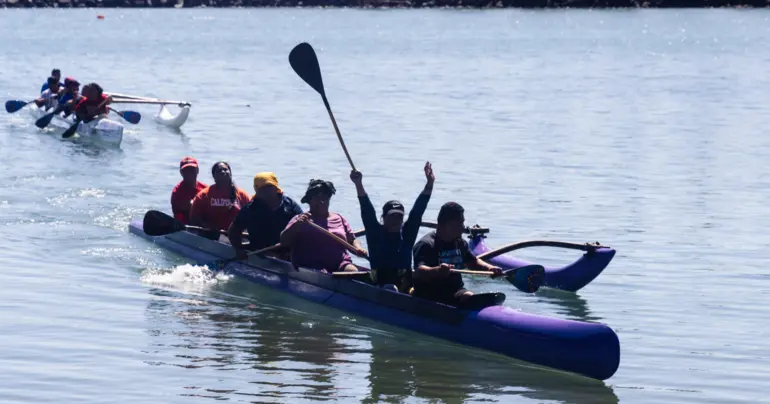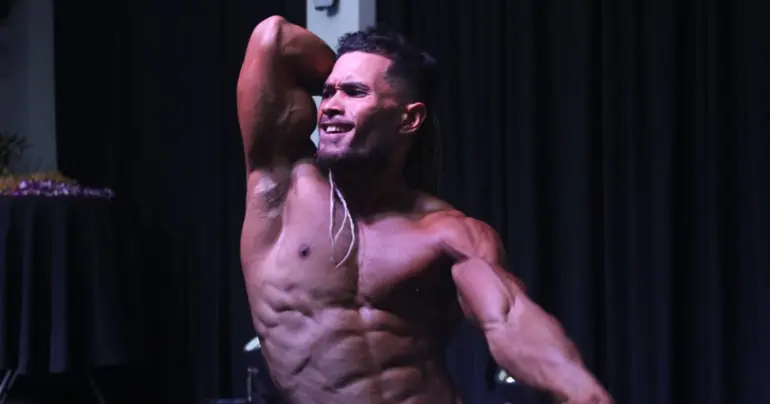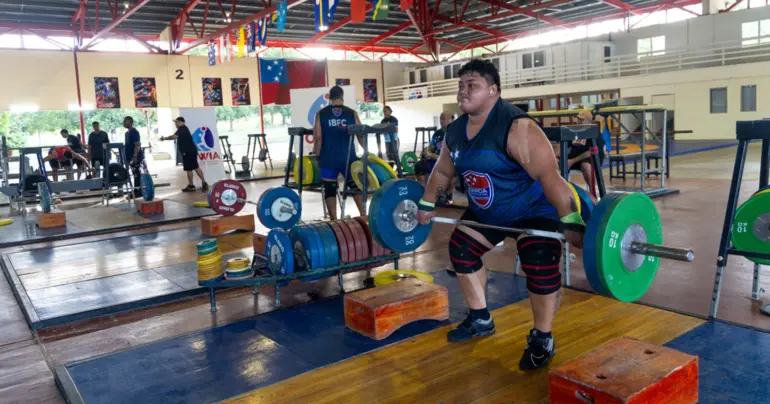Fijians, Kiwis celebrate multiple medals in Olympic rugby 7s
TOKYO (AP) — Little girls have been watching for decades as the boys in villages across Fiji's scattered islands endlessly honed the skills that would ultimately earn them a living by playing a game they love.
The way Rusila Nagasau’s squad went about winning bronze at the Tokyo Olympics, going ever-so-close to upsetting eventual champion New Zealand, showed that their national sport isn't solely the domain of Fiji's men.
After enduring four months isolated from their families in pre-Olympic camp, which started earlier than expected because of surging coronavirus cases in the Pacific island nation, Fiji’s women won a first Olympic medal.
“Back home, rugby is just a male dominated game right now,” Nagasau said. “For us, this is a big opportunity for (girls) to come up.
“If you can play an Olympic sport, for girls back at home, we’re just opening the doors.”
Ranked 10th in the world two years ago, Fiji's women beat 2016 Olympic champion Australia in the quarterfinals and also gave overwhelming title favorite New Zealand a major fright — taking their semifinal match to golden-point extra time after it finished at 17-all.
Fijiana's remarkable run highlighted the unexpected shake out of the women’s Olympic competition. France and Fiji finished on the podium at the expense of Australia and Canada, which won the bronze medal five years ago but slumped to ninth this time.
New Zealand's women finally converted their No. 1 status in the game into a gold medal. Fiji defended its title in the men's competition.
MONEY TALKS
“Rugby is our job. We’re very fortunate we get to do this for a living,” New Zealand captain Sarah Hirini said after the Black Ferns' victory. "That’s why we’re so successful.
“We’re grateful in New Zealand that we have a program that a young girl can aspire to, can get paid to do — you can make a good career out of it now.”
And for a country with such a vested interest in rugby, like New Zealand, spending on the women's game is widely regarded as a sound investment. France followed suit, after the women's team demanded it, and has netted its first Olympic medal in rugby sevens.
Fiji doesn't have the kind of money to match rugby's traditional powers, but it does have a fully committed community to back its sevens teams.
Australia placed fifth. The U.S. women's team — which has been ranked as high as No. 2 and did upset the Aussies in the group stage — was sixth, and Olympic sevens newcomers China and the Russian team reached the quarterfinals.
A lack of international competition because of the shutdown for the pandemic meant there was no real form guides ahead of the Tokyo Games. Fiji beat New Zealand in the men's final. Argentina made a surprising run, beating Britain for bronze. The time out helped the teams that had the strongest internal competition.
CHINA'S RISE
China's women's squad was able to relocate five times to continue training during the pandemic, with backing of the national Olympic committee.
Having the team on domestic TV, as it has been during the Olympics, can only give it more grassroots appeal.
Some of the Chinese players burst into tears of joy when their Scottish coach, Euan Mackintosh, confirmed they'd reached the quarterfinals after a big group-stage win over Japan.
Mackintosh thinks China could be the sleeping giant of the rugby sevens format, comparing the potential talent pool with that of the United States, where multisport athletes — like former American football players Perry Baker and Carlin Isles — have chased Olympic opportunities through sevens.
“If you look at the medal board right now for the Olympics, China have got a lot of athletes there,” Mackintosh said. “When rugby becomes a bigger sport, you’re going to get access to more athletes. The higher profile your sport becomes, the more athletes higher up the ladder will switch over."
Brazil captain Isadora Cerullo may not have played international rugby if it wasn’t for the Olympics. Now she’s part of a full-time program. She moved from the United States to Brazil to push for Olympic selection after rugby sevens was included on the 2016 program and the hosts needed a team.
“We have a couple of girls on the Olympic team now that started playing because they saw rugby being played at Rio,” Cerullo said. “It just shows, you have to plant the seed now. You have to nurture those seeds. The game will grow if it’s put in the right places and has the right investment.”
One of those fertile grounds, she thinks, could be China.
“Especially because they know how to throw sports a big pile of money where they need to,” Cerullo said. “I think women’s rugby is just going to explode after this.”
GROWING THE GAME
World Rugby chief executive Alan Gilpin said the Olympic tournament gave the broader game a boost.
“The investment coming into sevens through national Olympic committees and programs is starting to really develop — and you’ve seen that in the women’s game (with) China, Russian Olympic committee —some new and emerging talent,” he said.
China beat the Russian team for seventh place, but at least one of the gold-medal winning New Zealanders rated the Russians as a team of the future after having to play them twice.
“We get on with them, lovely people,” Ruby Tui said. “But on the field, they are bloody tough. They’re a tough, tough team. They weren’t at the last Olympics, so this is huge for them, massive congratulations.”
___
More AP Olympics: https://apnews.com/hub/2020-tokyo-olympics and https://twitter.com/AP_Sports











